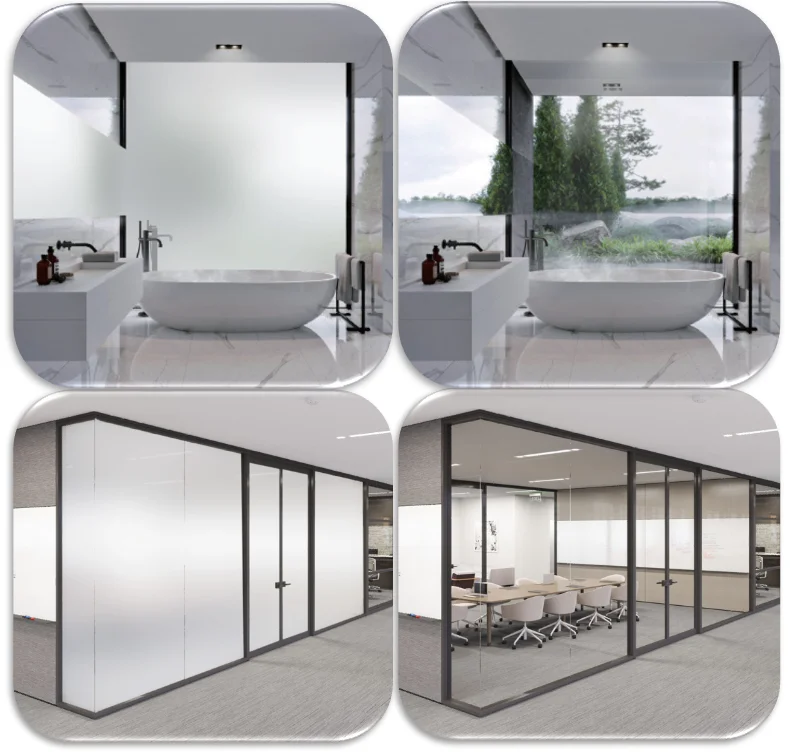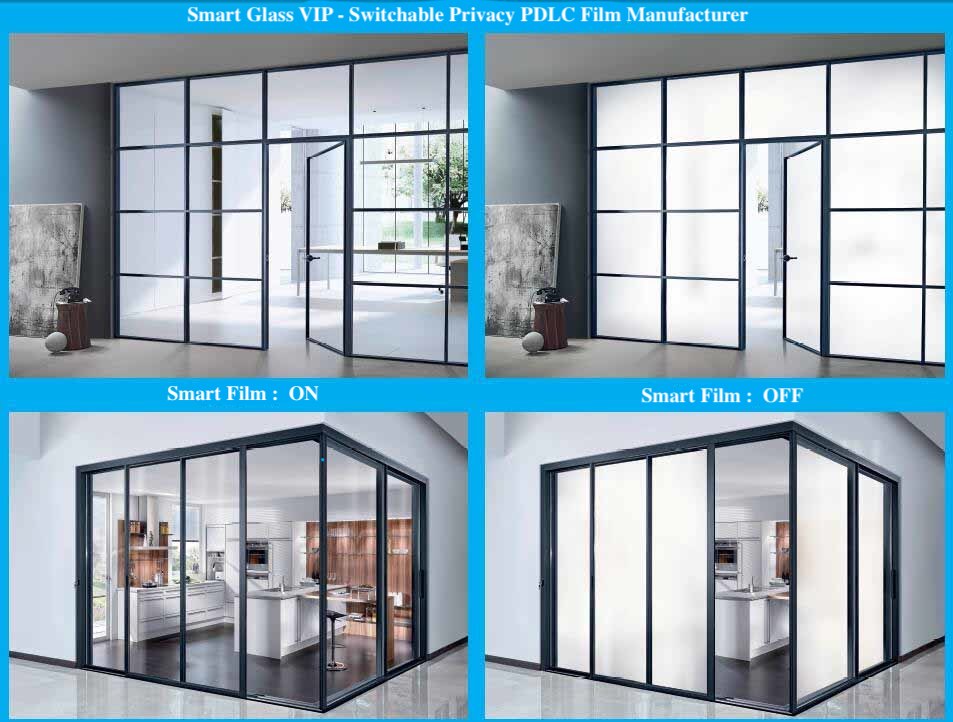Manufactured in the right manner, a piece of glass can be made to adjust its light transmission rates, controlling the light that passes through it, thus giving the glass the ability to changetransparency or color. This process is referred to as chromogenic. Chromogenics come in various forms, namely, electrochromic, thermochromic, photochromic, and gastochromic. Of these, the most popular and widely used is electrochromic, which can further be categorized into Polymer Dispersed Liquid Crystal or PDLC and Suspension Particle Device or SPD. PDLC film is most frequently used in commercially produced glasses. PDLC glass can be described as light control glass, which has the ability to regulate and adjust light transmission or light intensity that passes through glass. It is also sometimes referred to as smart glass, magic glass, intelligent glass, privacy glass, or switchable glass.
PDLC smart film is essentially a light changing liquid crystal material that works by adjusting light transmission with the application of an electric power source. The active component in PDLC film consists of microdroplets of liquid crystal, suspended in polymer. In its natural state, PDLC molecules are arranged in such a way that light waves reflect away from and refract through the surface. This distorts that state of the glass and present it as frosted. Applying electrical current to the PDLC layer polarizes the liquid crystal molecules and allows light to pass through.
PDLC smart film is designed for glass or Plexiglas applications. With the development of even newer technologies and manufacturing techniques, numerous switchable products have likewise been made, making the most out of available substrates. PDLC film takes on many forms, ranging from switchable laminated glass to toughened switchable glass, switchable double glazing, and switchable vision panels. Laminated safety glasses are ideal for use in high-traffic areas such as hospitals and bathrooms, whereas toughened switchable glass with a switchable optical layer is suited for various projection applications. PDLC smart films with double glazing are ideal for internal and external windows, while vision panels are great for use in partition walls and doors.
As technology continues to develop and advance, next-gen PDLC films are on their way, providing cost-effective and highly efficient alternatives to older switchable film technologies.
About the Author:
Justin Zhang is a representative from ShenZhen Yuguang New Material Co.,Ltd. Pdlctop.com leading smart glass manufacturer and wholesaler of PDLC Films and smart glass material over a span of 10 years. The company has all necessary certifications from ISO, SGS, CE, ROHS, China 3C and many other international standards with 20 technical patents.



